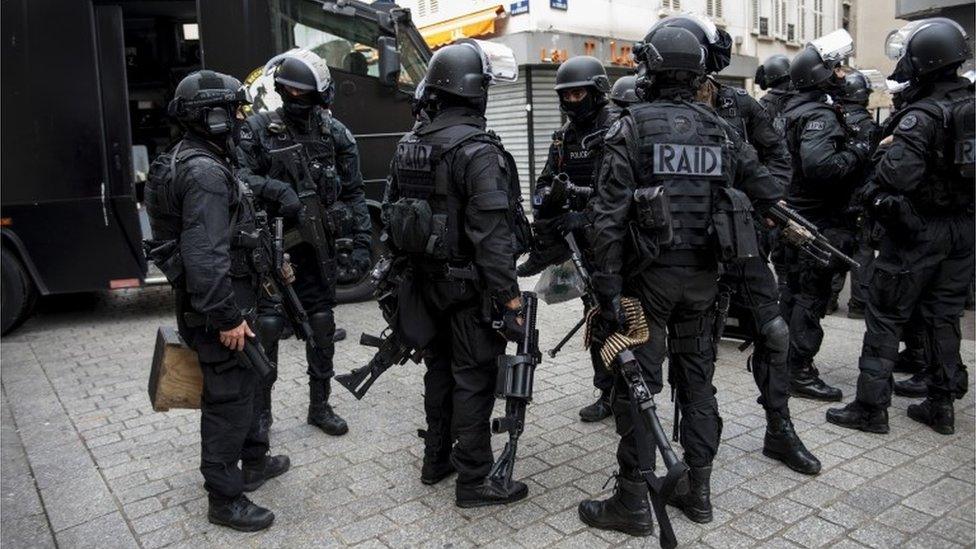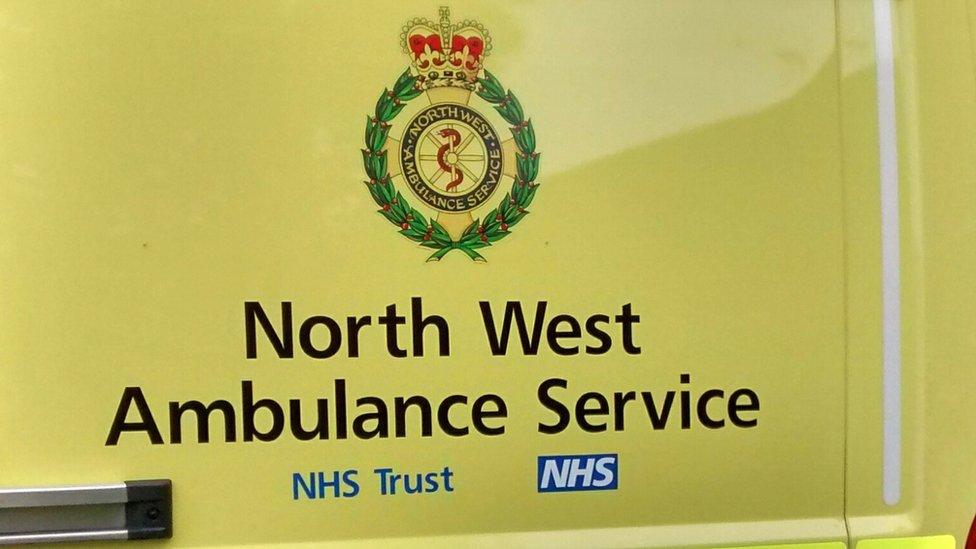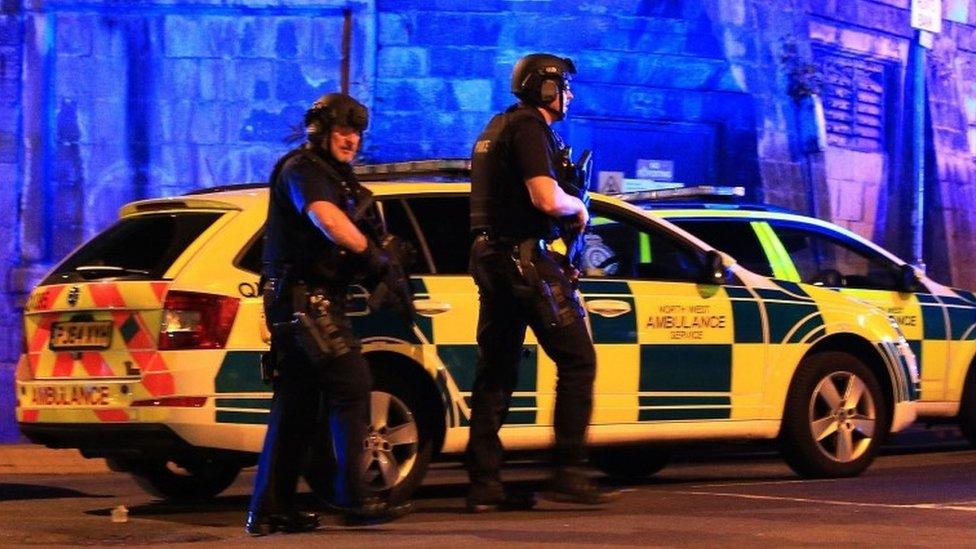Manchester Arena Inquiry: Police-embedded medics idea considered
- Published

Doctors embedded with police in France has allowed victims to be helped while an incident is ongoing, the inquiry heard
The inquiry into the Manchester Arena terror attack is looking into whether embedding doctors with armed police could speed up future response times.
The inquiry has heard many casualties waited more than an hour for treatment after the 22 May 2017 bombing over fears of further attacks.
Paul Greaney QC, lead counsel to the inquiry, said medical experts were part of "elite" armed units in France.
He said doctors helped while police fought with gunmen in Paris in 2015.
The inquiry into the bombing, which killed 22 people and injured hundreds more, has started looking into the "care gap" which caused delays in trained medical professionals getting to the arena.
The court heard on Tuesday that the UK National Counter-Terrorism Police do not currently support the idea of placing civilian medics within armed teams.
'Perplexed'
Mr Greaney said two doctors embedded with French police helped the casualties inside the Bataclan theatre while officers were still fighting the gunmen in the attack on 13 November 2015.
"As other members [of the police team] sought out and engaged the terrorists, the two doctors performed triage in the combat zone," he said.
The inquiry was told the medics carried out various treatments, including applying tourniquets and giving pain relief, and were also able to manage the evacuation of those injured.
One of the French doctors involved will give evidence to the inquiry in the coming days.

Twenty-two people died in the arena bombing on 22 May 2017
The inquiry also heard evidence from analyst and counter-terrorism expert John Laurie.
As part of research carried out for the inquiry, he has spoken to armed police teams in numerous countries across the world.
He told the court that many have medics as part of armed units, either civilian doctors such as in France or police officers with enhanced medical training.
Mr Laurie said evidence showed that lives have been saved in terrorist attacks by having medics embedded into armed response teams.
He told the hearing that in his opinion the idea should be considered in the UK.
The inquiry was also told that new tougher counter-terrorism measures may be introduced at larger public venues before being applied to smaller venues.
The government plans to introduce the Protect Duty legislation based on the campaign for Martyn's Law, which is named after arena bomb victim Martyn Hett.
Shaun Hipgrave, the director of Protect and Prepare at the government's Office for Security and Counter Terrorism, said it would "impact the whole of the country" and officials wanted to make sure any extra security was not "too much" for smaller businesses.
He said he "could not say" if the new law would be in place for the fifth anniversary of the bombing in May.
Inquiry chairman Sir John Saunders said he thought meeting the deadline was "unlikely".
Pete Weatherby QC, representing some of the bereaved families, said they were "perplexed at the lack of any kind of timetable going forward".
The inquiry continues.

Why not follow BBC North West on Facebook, external, Twitter, external and Instagram, external? You can also send story ideas to northwest.newsonline@bbc.co.uk
Related topics
- Published29 December 2021

- Published15 December 2021

- Published14 December 2021
